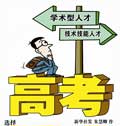第四部分 阅读理解(第一节11小题,第二节4小题;每小题2分,满分30分)
第一节:阅读下列材料,从每题所给的四个选项 (A、B、C和D) 中,选出最佳选项。
A
A man who failed to return more than 700 children’s books to five different libraries in the county was put into prison. Yesterday he was set free after a book publisher agreed to post his bond (担保金) of $1,000. The publisher said, “There’s a story here. This is a man who loves books. He just can’t let go of them. He hasn’t stolen a single book. So what’s the crime? We think that Mr. Brush has a story to tell. We plan to publish his story.”
When asked why he didn’t return the books, Mr. Brush said, “Well, how could I? They became family to me. I was afraid to return them, because I knew that kids or dogs would get hold of these books and chew them up, throw them around, rip the pages, spill soda on them, get jam and jelly on them, and drown them in the toilet.”
He continued, “Books are people, too! They talk to you, they take care of you, and they enrich you with wisdom and humor and love. A book is my guest in my home. How could I kick it out? I repaired torn pages. I dusted them with a soft clean cloth. I turned their pages so they could breathe and get some fresh air.
“Every week I reorganized them on their shelves so they could meet new friends. My books were HAPPY books. You could tell just by looking at them. Now they’re all back in the library, on the lower shelves, on the floors, at the mercy of all those runny-nosed kids. I can hear them calling me! I need to rescue them. Excuse me. I have to go now.”
61. Why was the man put into prison?
A. Because the book publisher persuaded the police to do so.
B. Because he stole 700 children‘s books from the five different libraries.
C. Because he refused to return the books that he had borrowed.
D. Because he wanted to publish his story.
62. How did the man treat books?
A. He treated them as real people.
B. He treated them as his own children.
C. He treated them as his furniture.
D. He treated them as his job.
63. From the passage we can learn that the man is _____.
A. a thief B. crazy about books C. a writer D. unfortunate
64. What might happen after the man was set free?
A. He might stop borrowing books.
B. He might start a library of his own.
C. He might return all his books
D. He might go on borrowing books from libraries.
B
Last summer, when Amanda R of Anaheim Hills, California, was running on a cross-country course with her team, she blacked out. “I got really dizzy,” she says. “I was out for a few minutes.” At first, Amanda thought she was just tired and didn’t think she had a health problem. She did go to the emergency room, where she was fine after tests, but she fainted (昏厥) again several days later as she was talking with her coach. Another doctor guessed that Amanda had blacked out “because we were in heat so much with not enough water and not enough of the right kind of foods”.
Teens often don’t want to stop and take a break or don’t notice when they start to feel bad, doctors say. However, paying attention if you’re not feeling well is important, as Amanda learned.
As a result, Amanda has changed her habits. “I drink a lot more water,” she says. “And put more salt in my diet. I’m eating more balanced meals.” Amanda advises teen athletes to trust their coaches and speak up when they’re not feeling well. “And recognize the difference between when you’re tired and when there’s something really wrong.”
Some people - up to 3 percent of the population - sweat too much, even in cold weather. The condition, called hyperhidrosis (多汗), can affect many parts and it often runs in families - hands down from generation to generation. Too much sweating over the whole body could be a symptom of another medical condition. Doctors aren’t sure what causes hyperhidrosis, but using special medications or other treatments can help.
65. What caused the happening mentioned in the passage during Amanda’s running?
A. She couldn’t breathe in enough air in the race.
B. She didn’t eat anything before the race.
C. She had been running all summer without a rest.
D. She neither drank enough water nor ate enough of the right kind of foods.
66. What can we infer from Paragraph 4?
A. There is no need to worry when sweating too much, even in cold weather.
B. Hyperhidrosis may have a bad effect on your health.
C. Doctors have discovered why people get hyperhidrosis.
D. Hyperhidrosis is a serious disease and no treatment can help.
67. The purpose of writing this passage is to____________.
A. tell teens the proper ways to take exercise in summer.
B. tell teens not to run in hot summer.
C. tell teens to pay attention to hyperhidrosis in the summer exercise
D. tell teens how to keep healthy.
C
Many of our favorite travel destinations are in danger of being changed badly by increased temperatures and rising seas. The following are some of the places that may be in danger and some that are already experiencing the effects of global warming.
The Everglades, Florida: Perhaps no region of the country is as unprotected to climate change as Florida. Even a slight increase in temperature and water level could devastate popular destinations like the Everglades, Miami Beach and the Keys.
Australia’s Great Barrier Reef: One of the most impressive natural habitats in the world, the Great Barrier Reef could be killed by increased water temperatures and the resulting coral bleaching (漂白法). Australia is particularly easily damaged by global warming because of its large number of fragile (脆弱的) ecosystems, uncertain water sources and a large group of people gathering on the coast.
Dalian, China: Fast-growing China, shown here during a heat wave last year, is opening about one coal factory every day this year. Along with the U.S., China is one of the world‘s leading contributors to the greenhouse gases , which can lead to the increase in the Earth‘s temperature.
Venice, Italy: No stranger to flooding, Venice has invested $4.5 billion in a floodgate system that is due to open in 2012. But the frequent changing ocean levels have made people question the floodgates‘ ability to hold out the rising waters.
London, England: Designed to protect London from storms and extremely high tides, the Thames Barrier was opened in 1984. Some analysts fear that rising oceans will create conditions beyond the capabilities the barrier was designed to meet.
66. The word “devastate” in paragraph 2 means “_____________”.
A. protect B. destroy C. swallow D. enlarge
69. What can endanger Great Barrier Reef directly?
A. Fragile ecosystem
B. Uncertain water sources.
C. The large group of people.
D. Increased water temperatures and the coral bleaching
70. The underlined sentence means “____________”.
A. flooding is common in Venice
B. everyone is familiar with flooding
C. it is strange for Venice to experience flooding
D. there is no flooding in Venice
71. The subject discussed in the text is that ____________.
A. the dangerous destinations B. the most popular destinations
C. the fascinating destinations D. the endangered destinations
第二节:阅读下列应用文及相关信息,并按照要求匹配信息。
根据短文内容,从短文后的选项中,选出能填入空白处的最佳选项。选项中有两项为多余选项。
72._____________. It makes us wonder… if scientists can send a man to the moon, why can’t they find a cure for the common cold? The answer is easy. There are actually hundreds of kinds of cold viruses out there. You never know which one you will get, so there isn’t a cure for each one.
73. _____________. Blood rushes to your nose and cause a block in it. You feel terrible because you can’t breathe well, but your body is actually eating the virus. Your temperature goes up and you get a fever, but the heat of your body is killing the virus. You also have a runny nose to stop the virus from getting into your cells. You may feel very uncomfortable, but actually your wonderful body is doing everything it can to kill the cold.
74. _____________. In the United States and some other countries, for example, people might eat chicken soup to make themselves feel better. Some people take hot baths and drink warm liquids. Other people take medicine to stop various symptoms (症状) of colds.
75. _____________. The virus stays in you longer because your body doesn’t have a way to fight it and kill it. Bodies can do an amazing job on their own. There is a joke, however, on taking medicine when you have a cold. It goes like this:
It takes about one week to get over a cold if you don’t take medicine, but it takes only seven days to get over a cold if you take medicine.
A. When a virus attacks your body, your body works hard to get rid of it. B. American people never take colds seriously C. There is one interesting thing to note —some scientists say taking medicines when you have a cold is actually bad for you. D. It is easy for many people to catch a cold in the springtime or fall. E. Different people do different things to deal with colds. F. You can’t get over a cold unless you take some medicine. |
上一篇:广东省茂名市2014年高三英语第二次模拟考试试卷及答案(带解析)
下一篇:江西省赣州市会昌县2014年中考语文模拟考试试卷及答案

 你现在的位置:
你现在的位置: 浙江省试卷
浙江省试卷 图片新闻
图片新闻




 热门试卷
热门试卷




